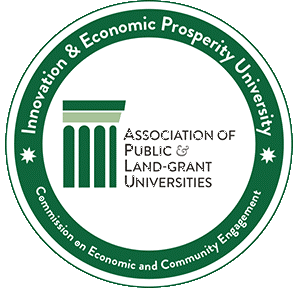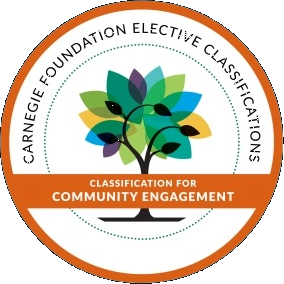Attention: Faculty, Academic Staff, and Students Interested In Community-Engaged Research/Creative Activity and Community-Engaged Teaching/Learning
Friday, March 23, 2018
Kellogg Hotel and Conference Center
8:00 a.m. check-in, light breakfast, and networking
8:30 - 10:00 a.m. workshop
Any successful response to a complex problem will acknowledge the different ways in which stakeholder communities know about the challenge. If such a response is to be inclusive and just, it must integrate these different ways of knowing so that stakeholders recognize how it aligns with their core beliefs and values. University faculty and staff involved in creating community-university partnerships for community-engaged research, teaching, or service frequently find themselves in the challenging position of attempting to foster dialogue and coordinated action across partners’ different ways of knowing, with little guidance on the techniques and tools for bridging different ways of knowing.
This panel will address the challenge of knowledge integration, focusing on how specific tools and approaches (e.g., structured dialogue, participatory modeling, etc.) can be used to coordinate different ways of knowing. Focusing on concrete problems involving different ways of knowing, panelists from the Community Sustainability, Philosophy, and Family Medicine departments and their community partners will discuss specific ways of integrating knowledge to support sustainable responses. Participants will come away from the session with an understanding of practical tools for integrating knowledge across different ways of knowing.
PANEL PRESENTATIONS
Integrating Community and Academic Ways of Knowing to Understand Detroit Food Systems
Integrating Community and Academic Perspectives to Create a Healthfulness Index for Flint Neighborhoods and Plan Future Research
Moving Towards a Transformative Justice Collective in Lansing
MODERATOR
BIOS
Sponsored by: Community Evaluation and Research Collaborative, MSU Center for Interdisciplinarity, Department of Community Sustainability Graduate Student Organization









